
Interview“Examination quality is always our highest priority”
Eva Schewior has been DPMA President since February 2023. In this interview, she talks about the strategic challenges for the office in the next years, women in leadership positions and the crucial importance of IP rights for growth and prosperity in our society.

Ms Schewior, you have been DPMA President since February 2023. In your opinion, what are the big strategic challenges the office is facing?
The DPMA is the largest national patent office in Europe and the fifth largest national patent office in the world. This leadership position is based on the strength of our innovation site on the one hand and on the quality of our examinations on the other hand. This year, the European Unitary Patent will be introduced (see here). This means that applicants have a new option for protection, which we are also pleased about. But still, we strive to highlight even more the advantages and benefits of the German patent as well as of our utility model in the international IP system. And of course, we are working on making them even more attractive. Last year, for the second time in a row, we were able to reduce the backlog in patent examination procedures…
…and thus made an immediate impact on the duration of procedures.
That is right. If we can manage to permanently clear the backlog in procedures, we will be able to gradually reduce the time it takes to complete a procedure. However, examination quality always has top priority at the DPMA. This is what our applicants can rely on. And that is equally valid, by the way, for the other IP rights. In the fields of trade marks and designs, we are of course also working on making our procedures even more attractive. For all those tasks, which serve our economy, we continue to need political support, above all, so that we will also have sufficient staff available in the future.
Having enough permanent posts is one aspect. Being able to fill them in times of lack of skilled staff is an entirely different story. How confident are you in that regard?
That is another and absolutely crucial challenge. We are constantly looking not only for engineers and natural scientists, but also for a lot of skilled IT staff. The DPMA is a highly digitised public authority, and our IT systems are the key element of our working capacity. When trying to recruit experts for our tasks, we are competing with international technology companies at our locations in Munich and Jena. The positioning as an attractive employer will therefore become an almost existential task in the next years. But I am very optimistic. The DPMA has recently been doing quite well in filling positions in these fields with outstanding staff.

We offer our colleagues a maximum of flexibility.
What makes the DPMA an attractive employer?
I do not think that I exaggerate when I say: We offer our colleagues a maximum of flexibility for the completion of their tasks. Our experience gained from the COVID-19 pandemic, during which many of our investments in digitisation already paid off, has confirmed that as a target. This year, we adopted a new work agreement (Dienstvereinbarung) on workplace flexibility (see here). Our colleagues are supposed to be able to choose their working model in terms of place and time as individually as possible.
At the same time, of course, we strive to maintain the face-to-face exchange of our staff. We want our staff to be able to reconcile their personal life and their professional tasks as well as possible. A target close to my heart is for us to recruit more qualified women. The DPMA as a technical authority might sometimes be more in the focus of men. But several awards proof that we are a very attractive employer, especially for women. We will continue to stand out with these benefits.
Does your personal experience as a woman and as a mother play a role in all of this?
It does play a role, for sure. I am quite familiar with the challenges we can be faced with at the personal or family level when we take on professional responsibility, maybe even a leadership role. We want highly qualified women to work for us, also in leadership positions. I am glad that work-life-balance is already an inherent part of our organisational culture. And we are going to foster and expand this culture.
You are the second woman leading the DPMA, an office with 146 years of history. Does that mean anything to you?
First and foremost, I am glad and proud on a personal level that the Federal Minster of Justice trusted me with such an important task. From the point of view of society as a whole, I take this as normalisation, which is why I am also pleased in this regard. My much-valued predecessor Cornelia Rudloff-Schäffer was in office for a long time, during which she made quite an impact, and that is now no longer a historic exception. It is clearer than ever that, of course, women can lead a national authority active in the fields of technology and natural sciences.

Commercial IP rights play a crucial role for growth and prosperity in our society and are therefore also of outstanding importance from a strategic point of view.
What intrigues you about the new position?
The variety of tasks, and the cooperation with many different people working in the big organisation that the DPMA is. The international relations and the impact of our office on the international discussions around intellectual property are an exciting challenge to me as well. And of course, there is the importance of our statutory mandate as a whole:
Commercial IP rights play a crucial role for growth and prosperity in our society. Studies show that industrial sectors with high numbers of applications for IP rights create much more value and jobs and offer higher salaries compared to other sectors. That says a lot about the importance of our tasks.
How important is the new statutory mandate to provide information according to section 26a of the Patent Act (see here) in this regard?
That is an extremely important task that we are excited to take on. Big companies know how essential commercial IP rights are and how to navigate them. But the new mandate to provide information gives us the possibility to raise awareness among the general public and in particular among small and medium-sized enterprises. However, the topic of awareness of how to protect innovation using IP rights is not limited to the industry. It should also be considered in the federal governments’ innovation strategies from the very beginning. After all, we can see how much strategic importance China, for example, attaches to patents. In Germany, too, we should take a clear stance in this regard.

In Focus IP rights make us happy!
Patents, utility models, trade marks and designs protect intellectual property. They are assets and make companies more competitive. Sometimes, they even make us happy! On our social media channels, we have collected pictures of applicants joyfully presenting their IP rights certificates. Social media help us make the great importance of IP rights visible. Clearly, our channels are also a good place for our customers to share their delight once they hold the much sought-after DPMA certificate in their own hands.
Follow us on our social media channels and get inspired!

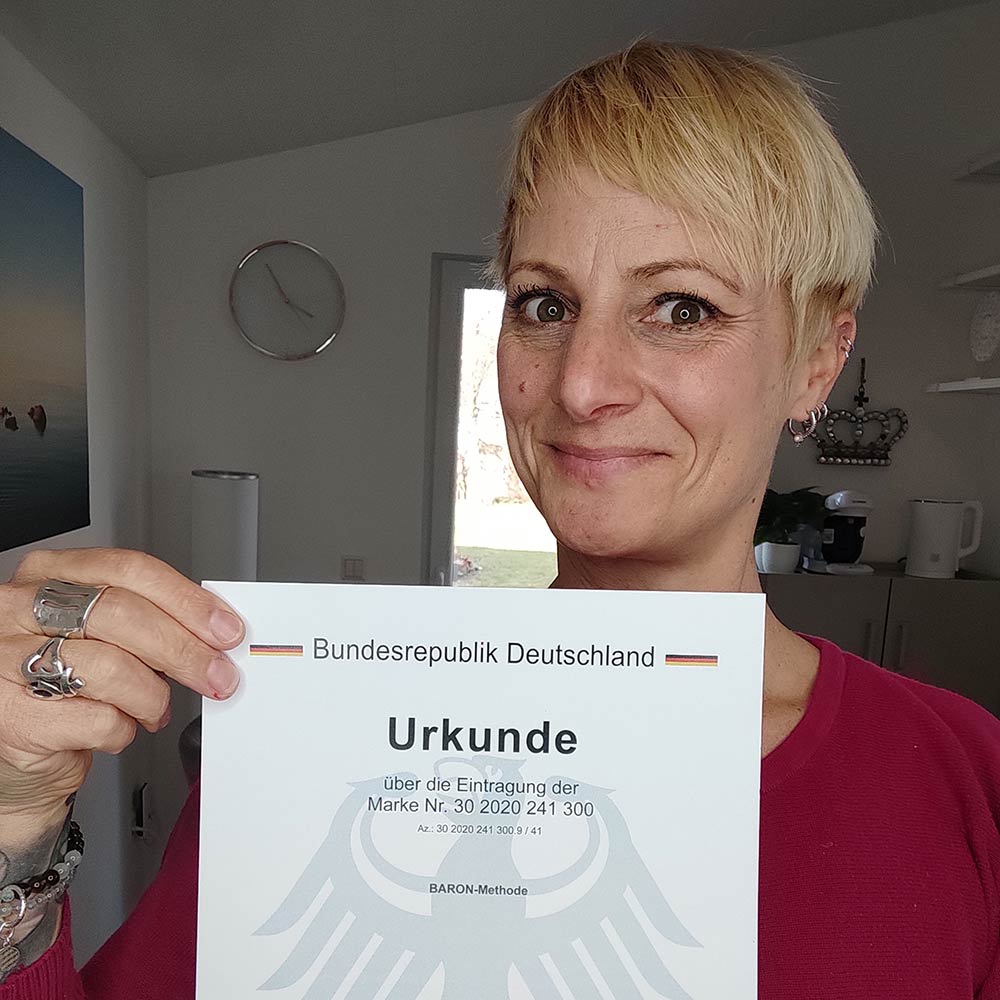

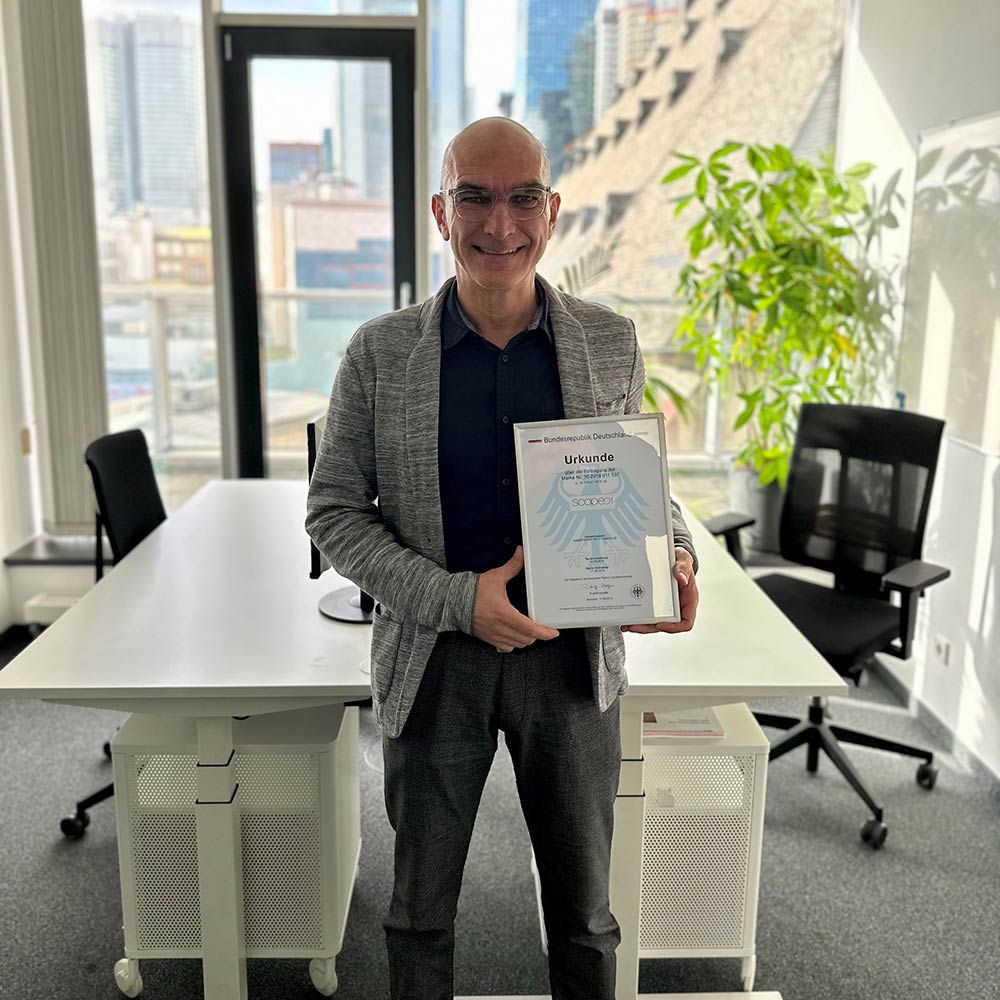
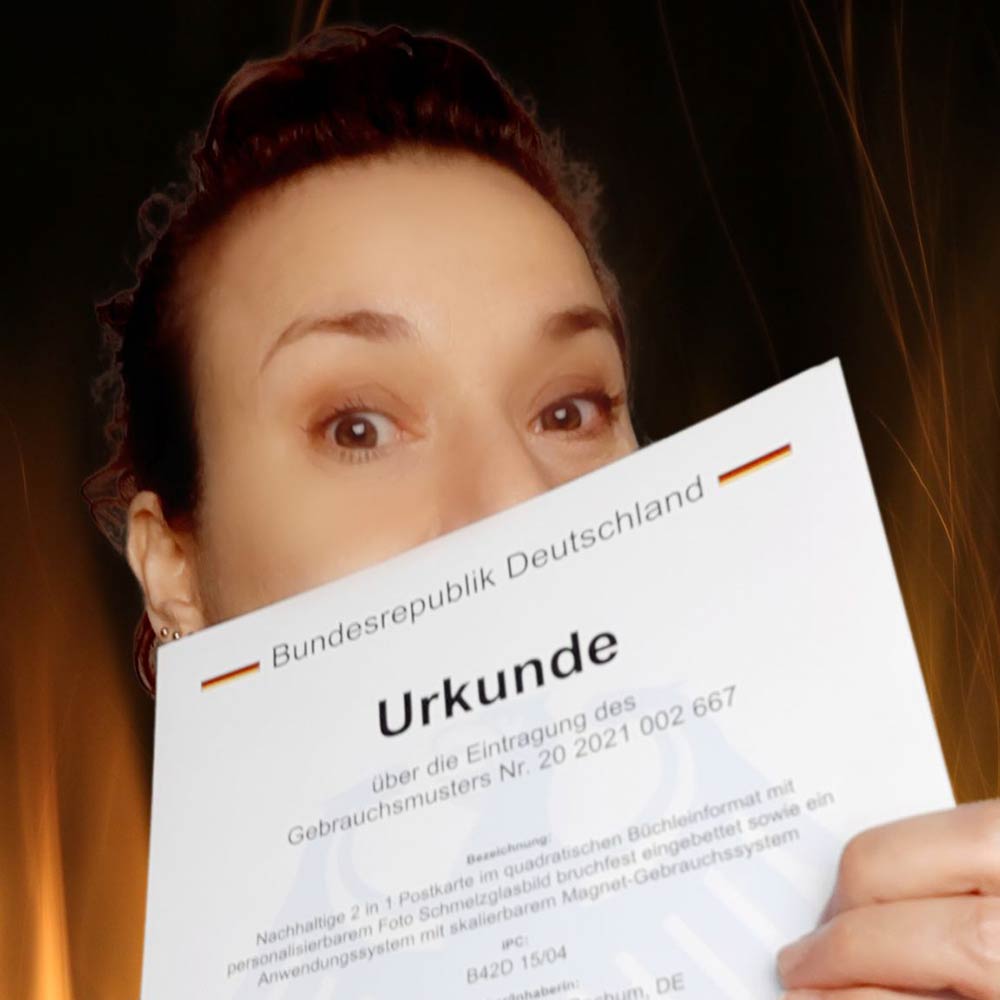
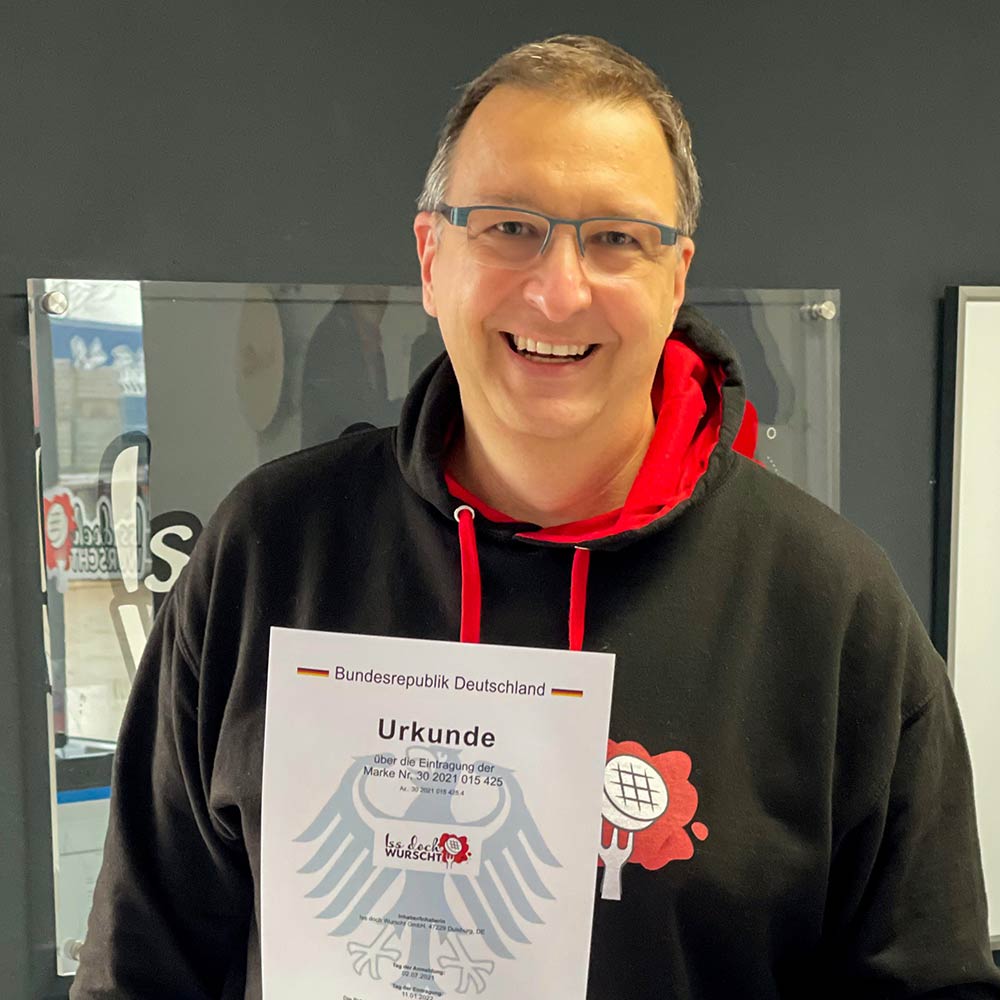
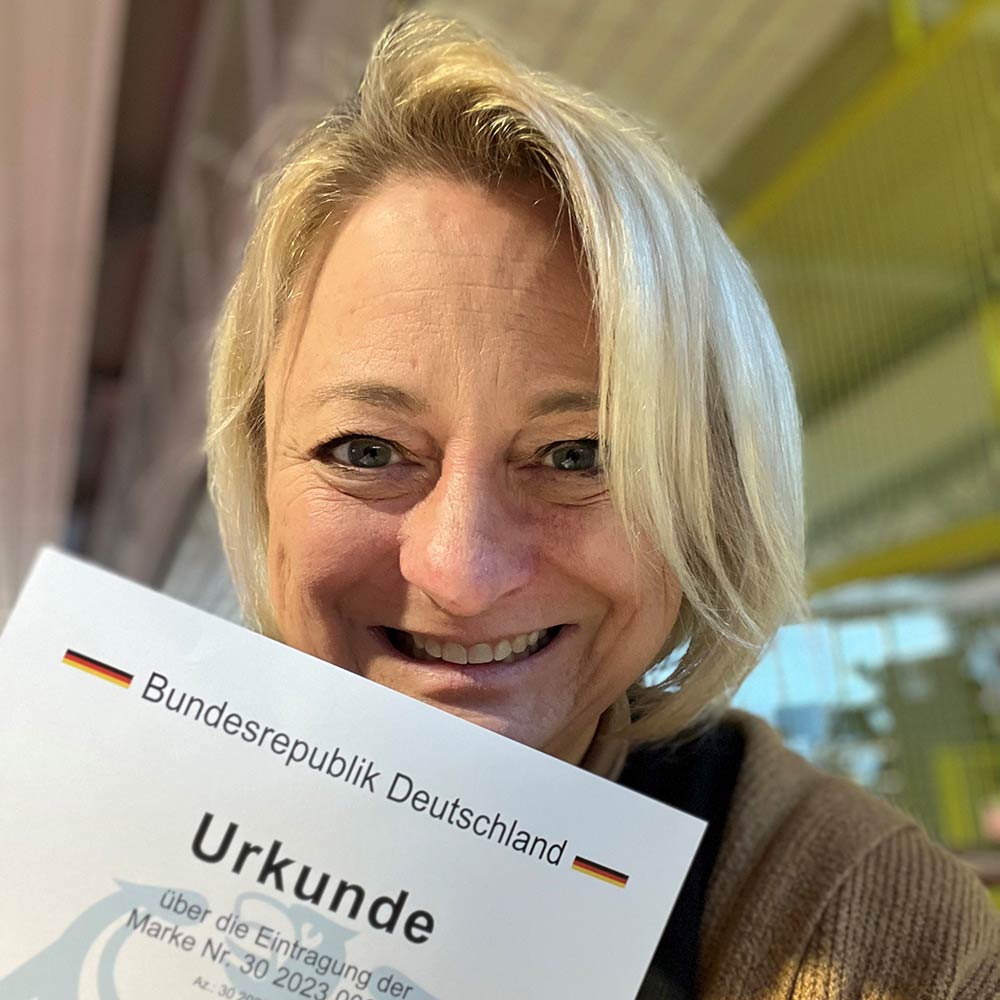
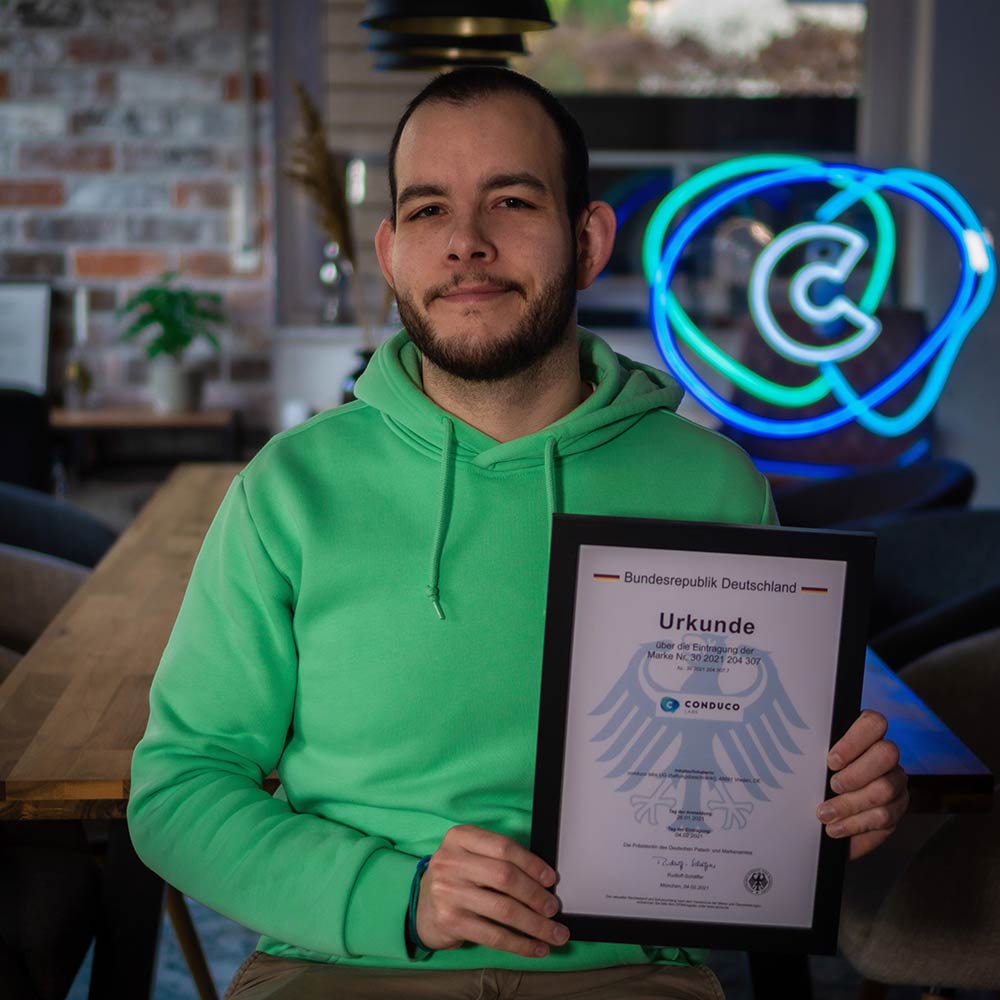

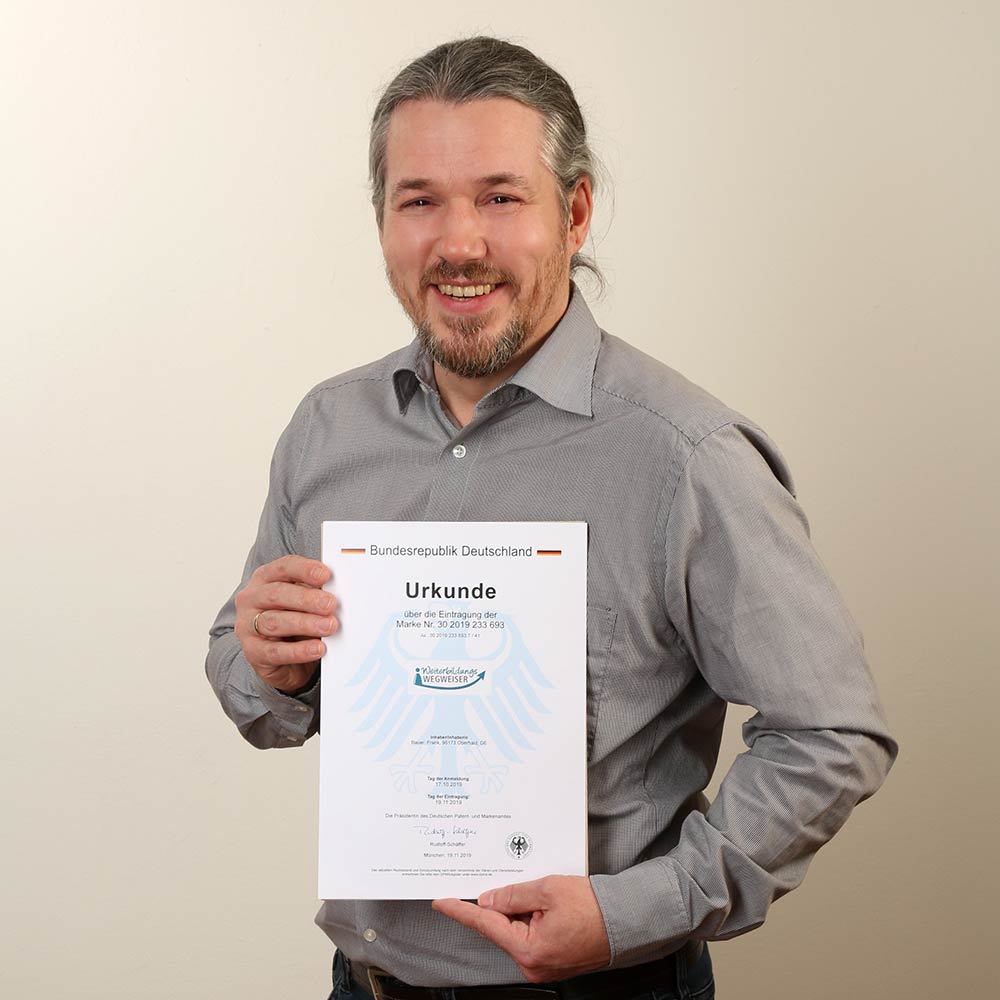
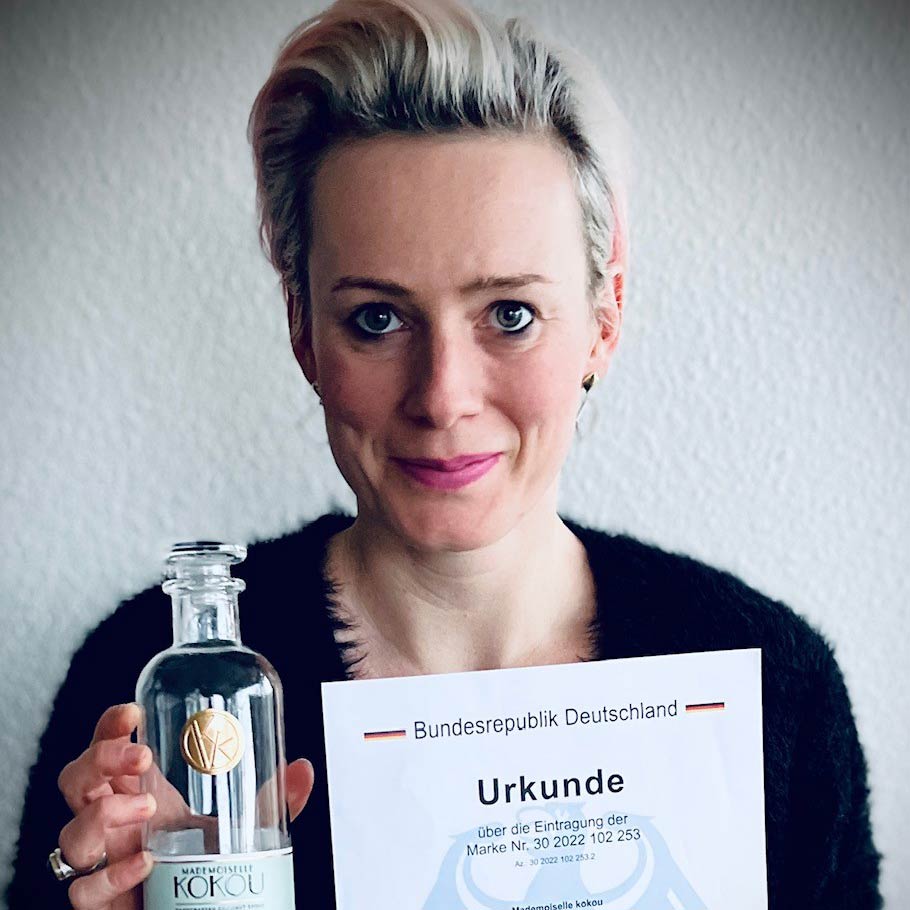
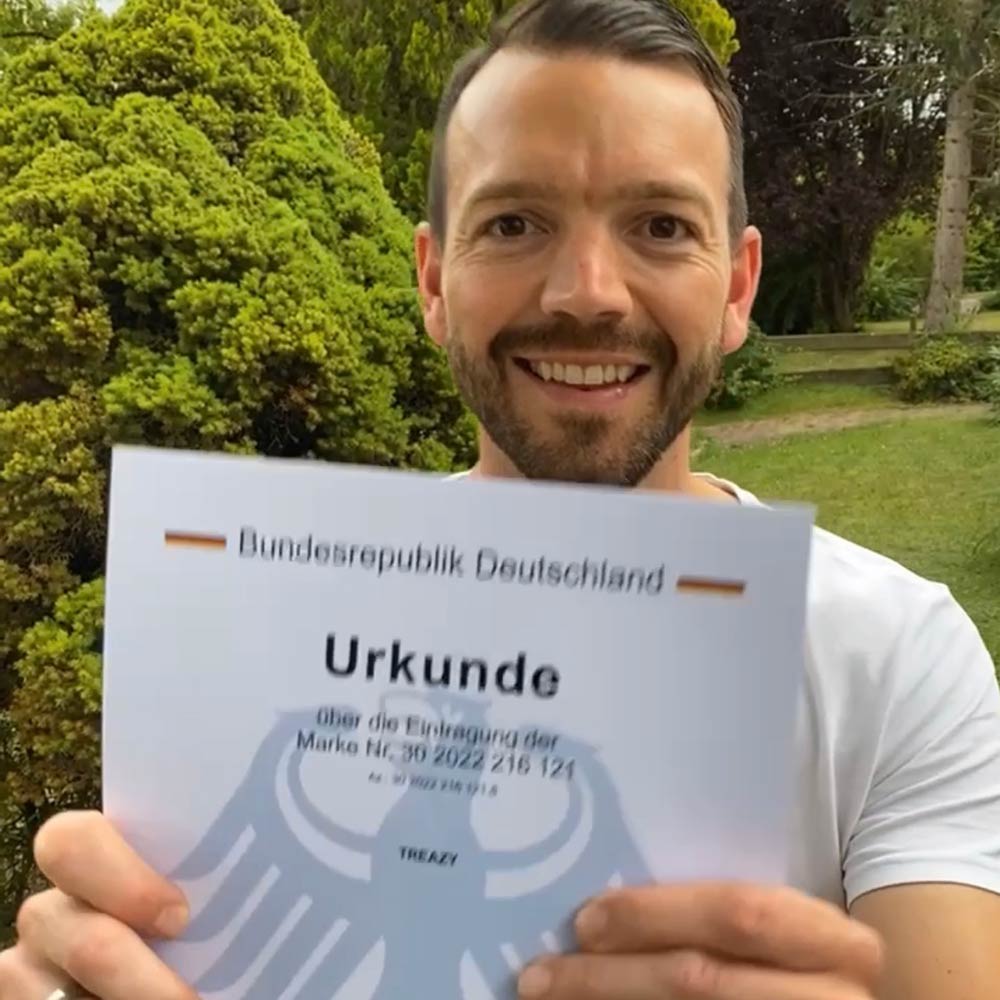

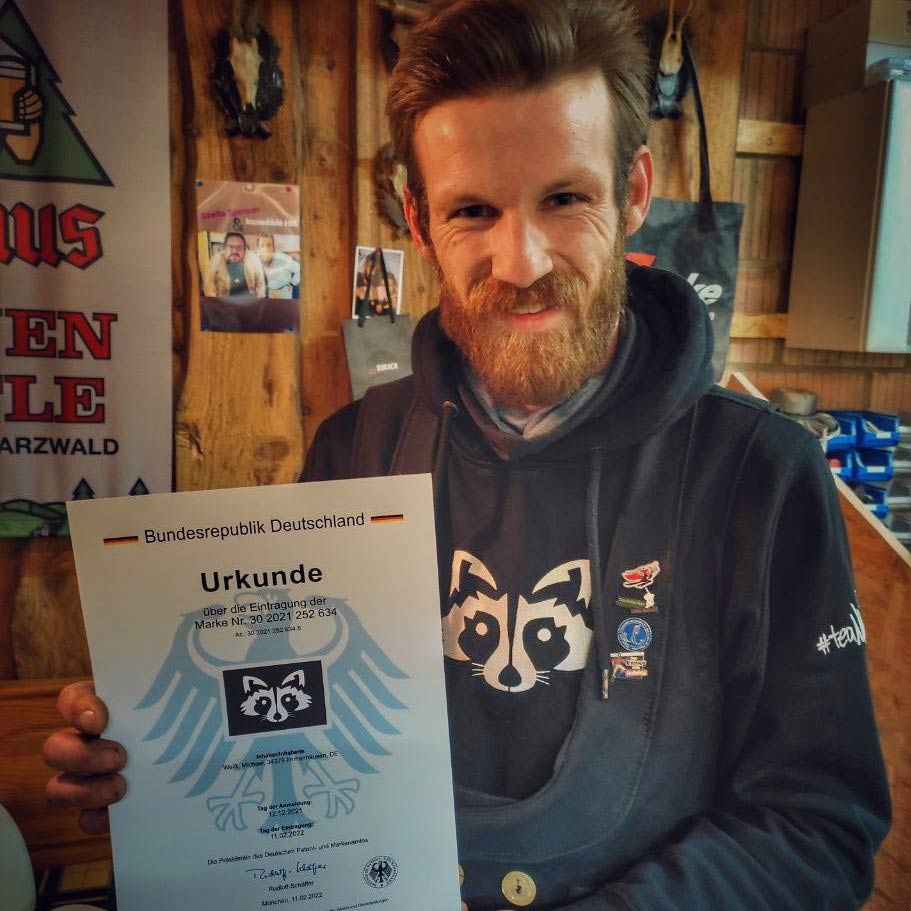
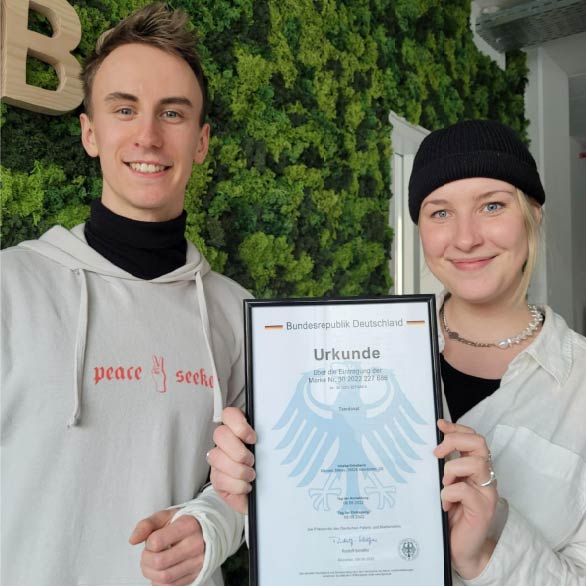
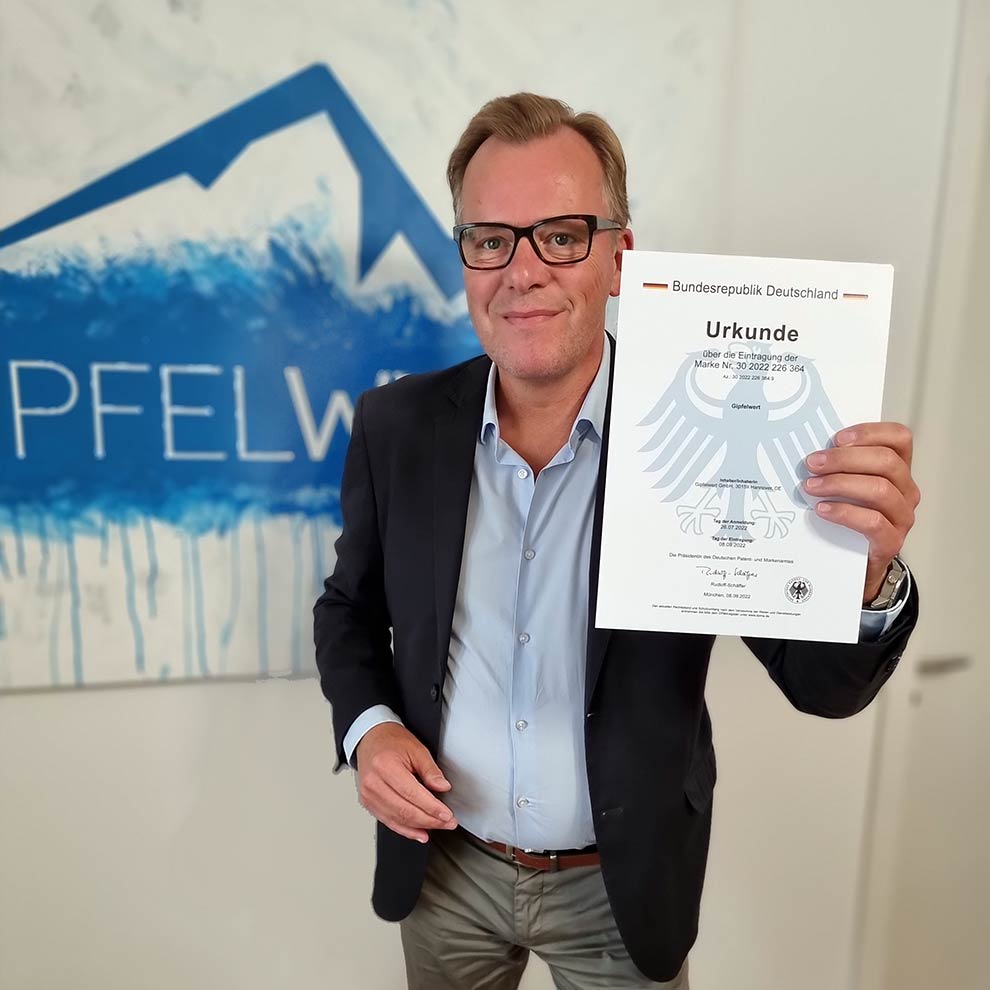
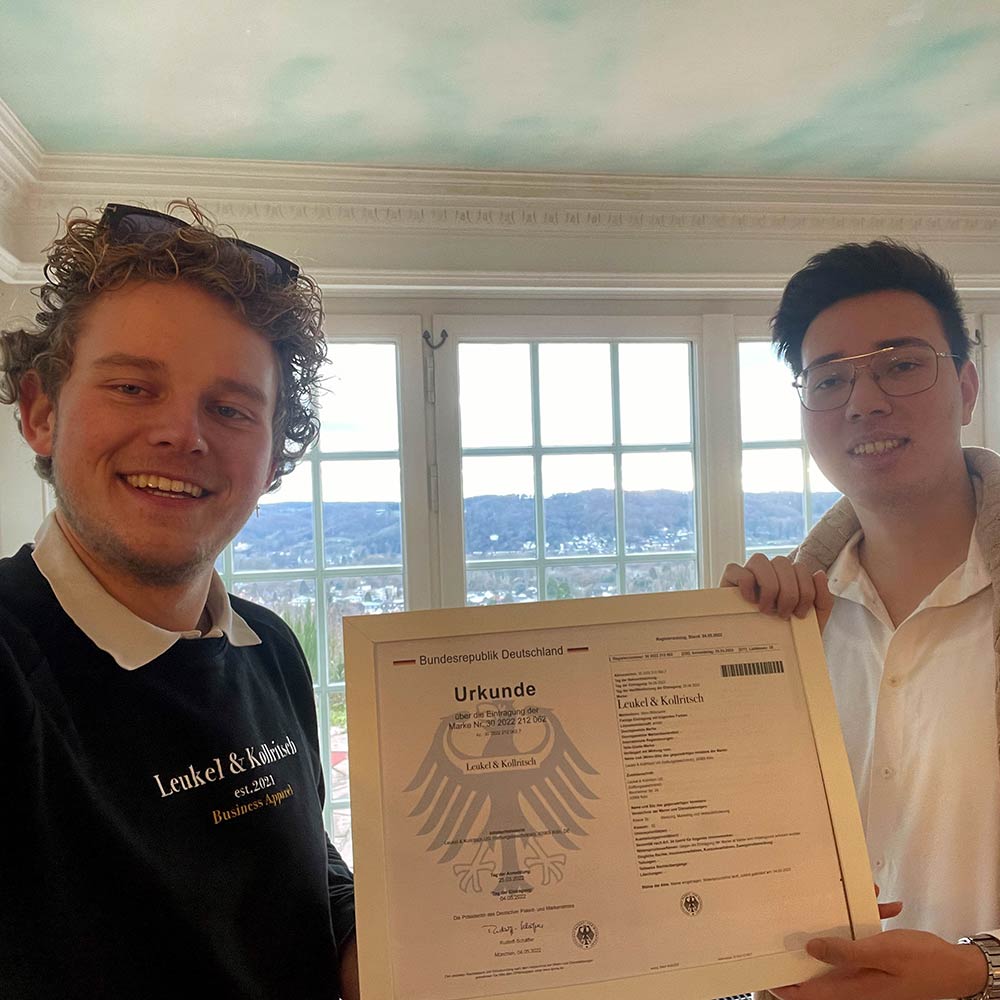
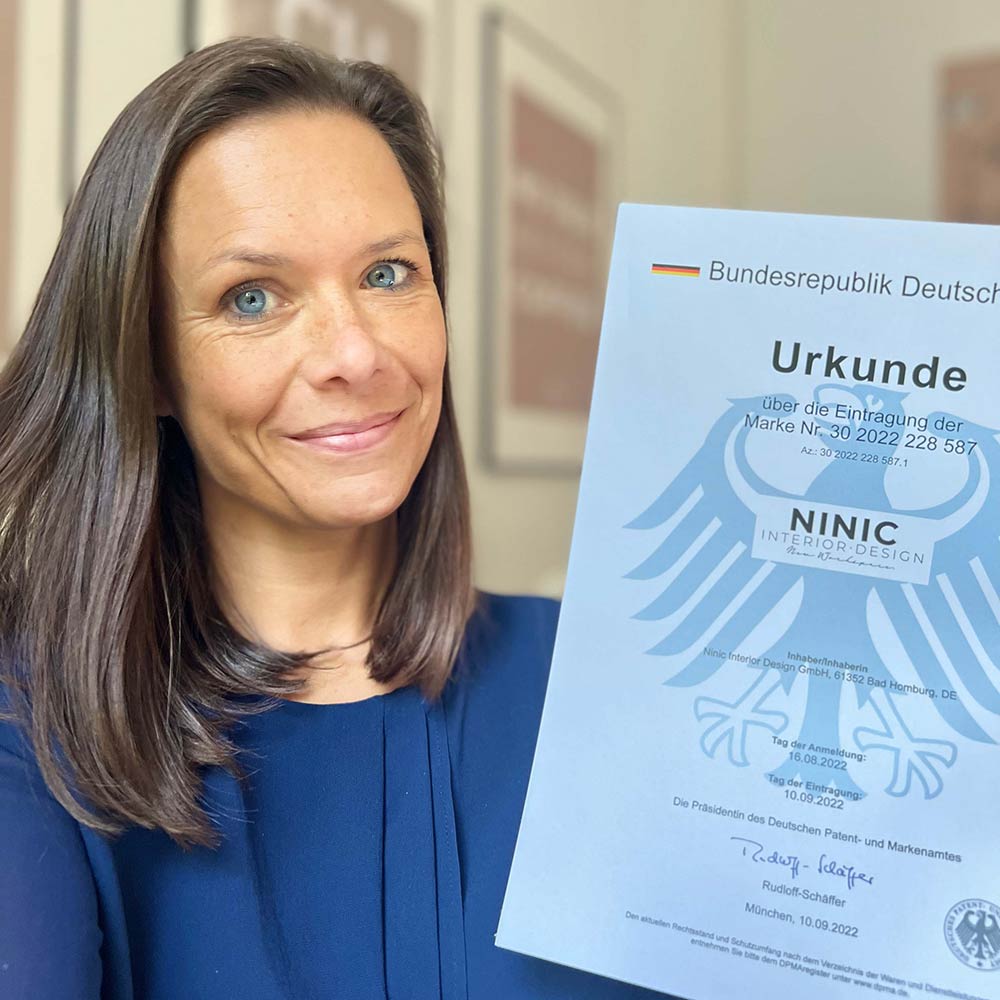
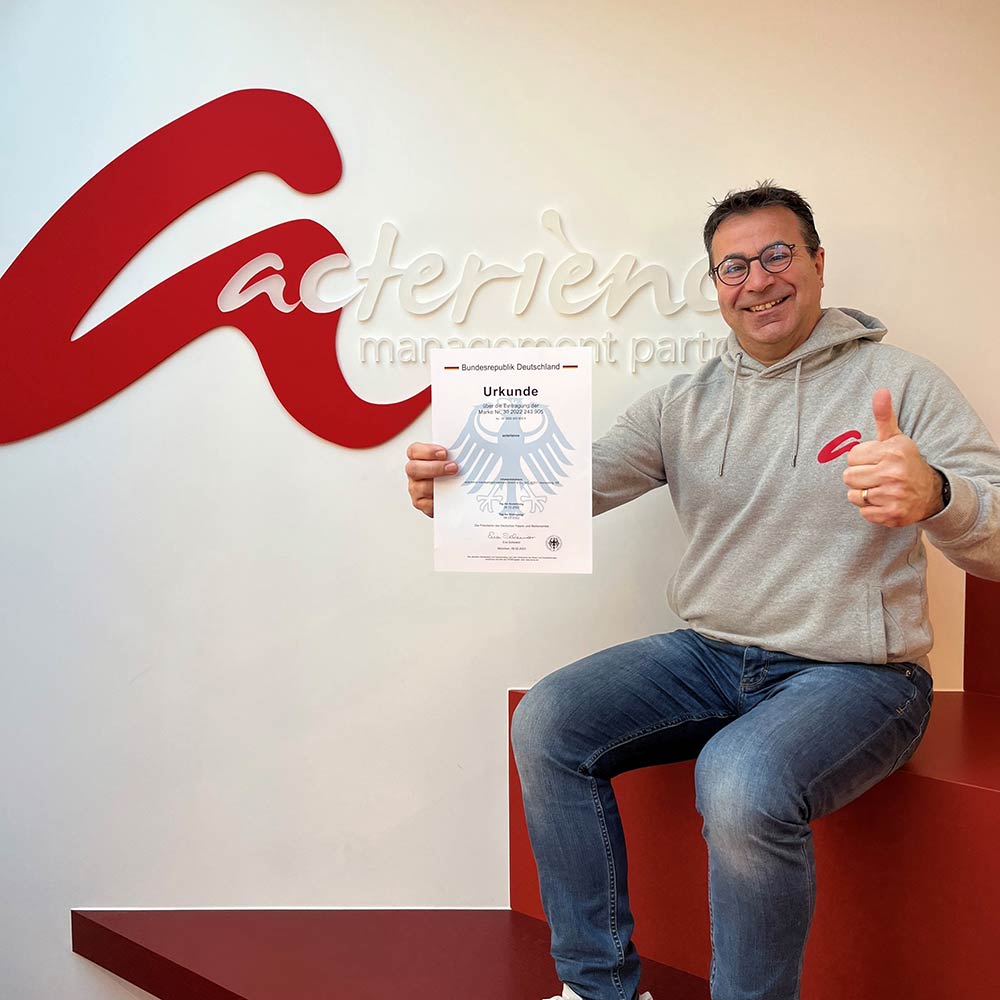

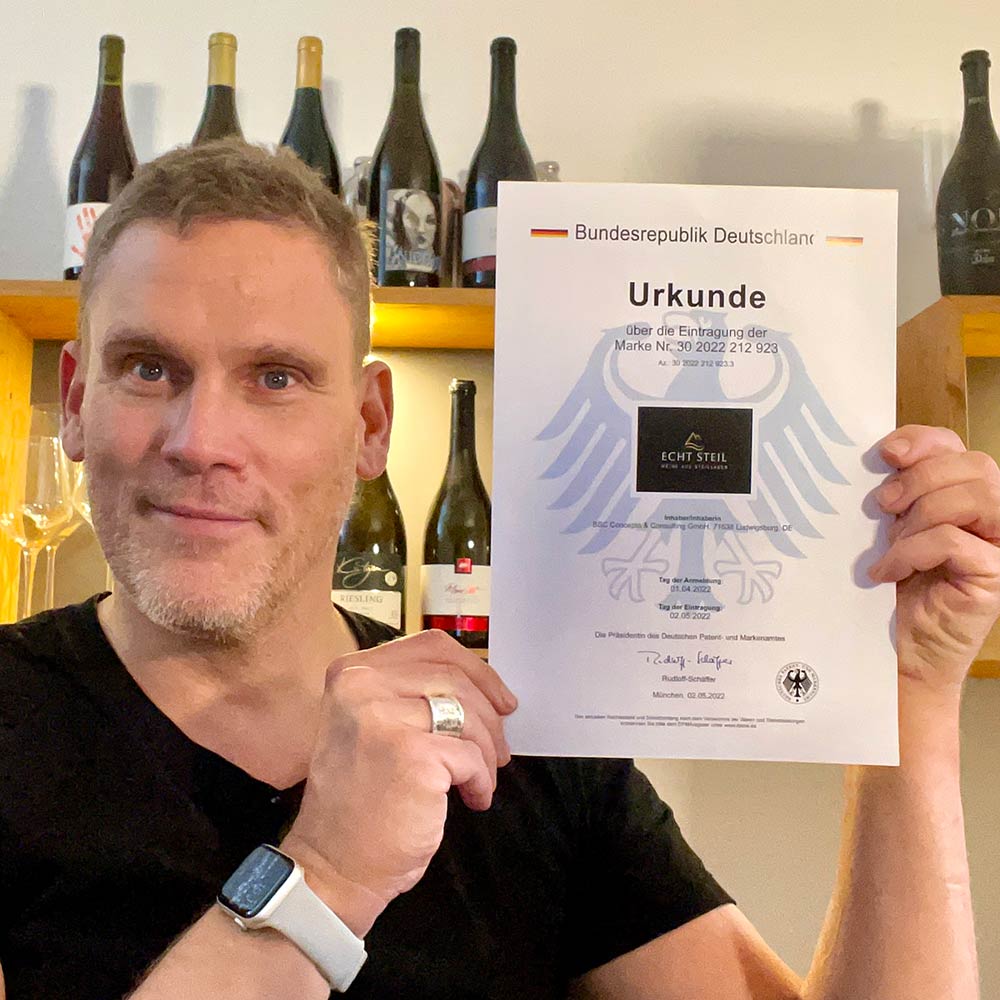
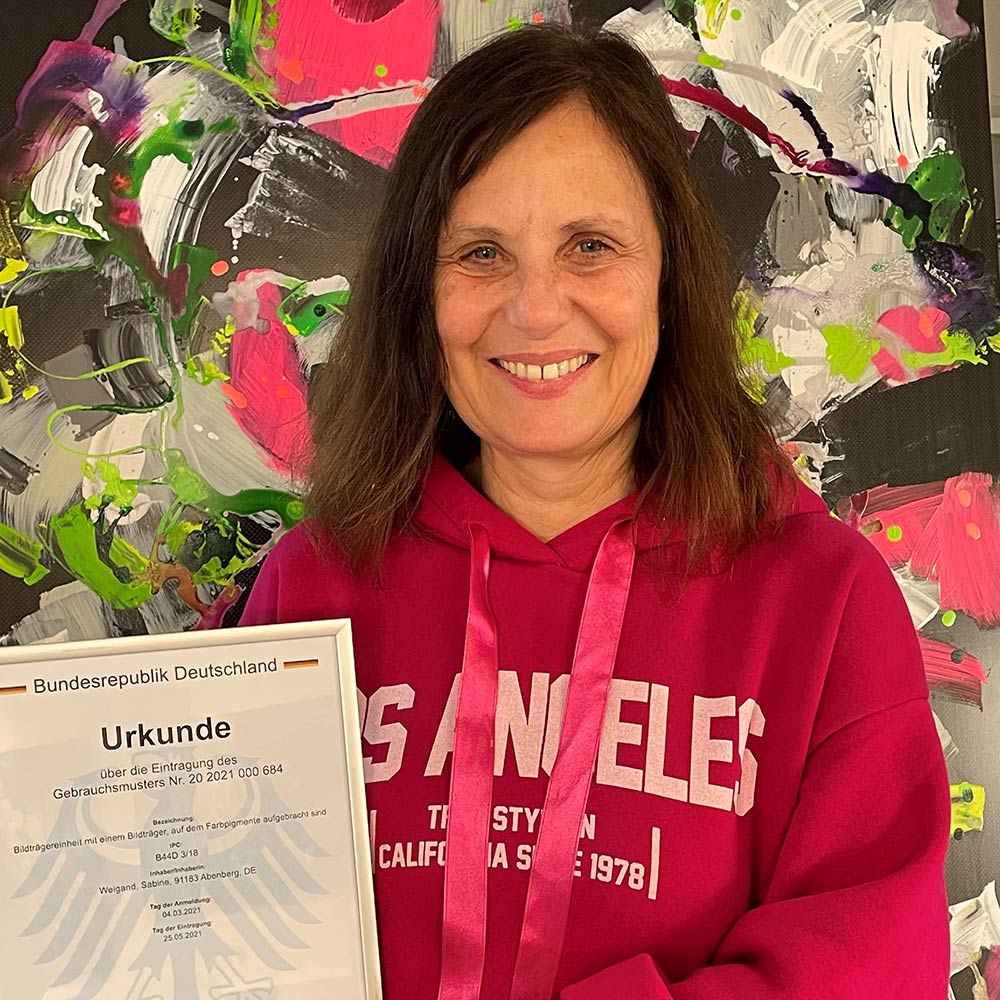
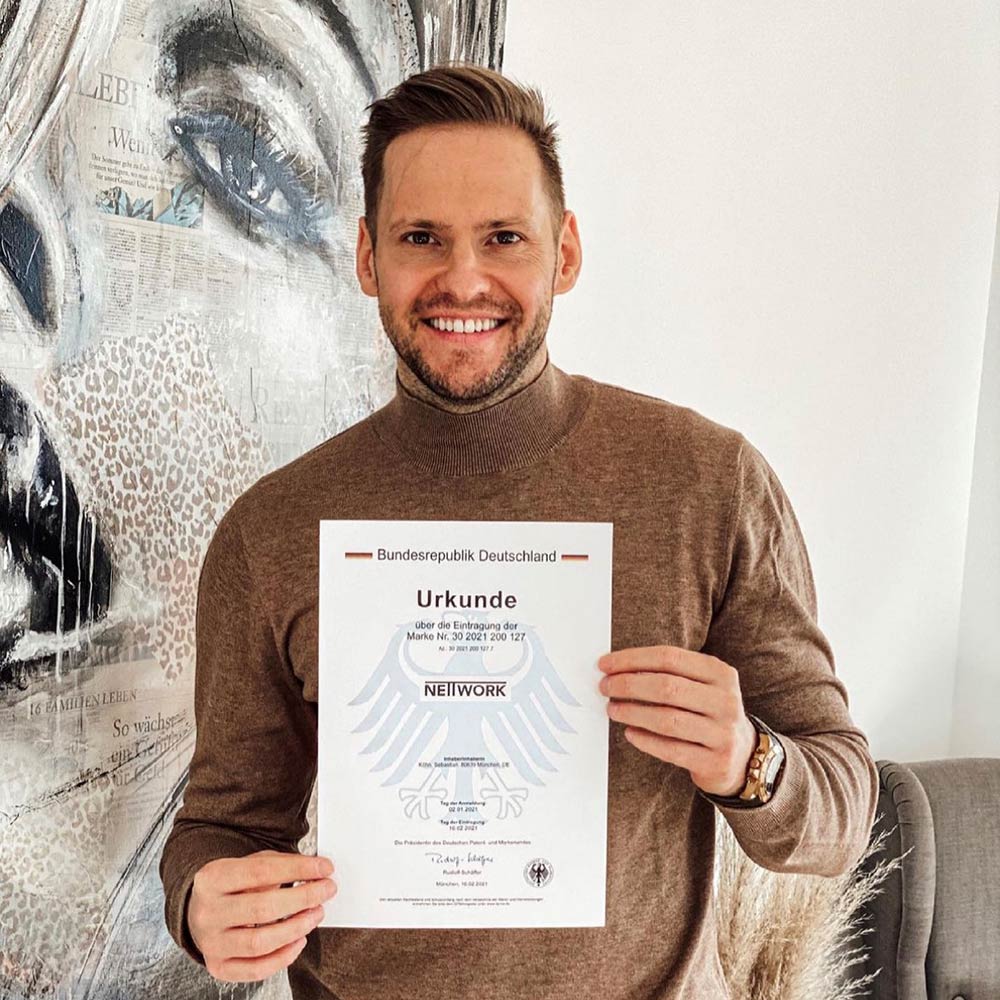

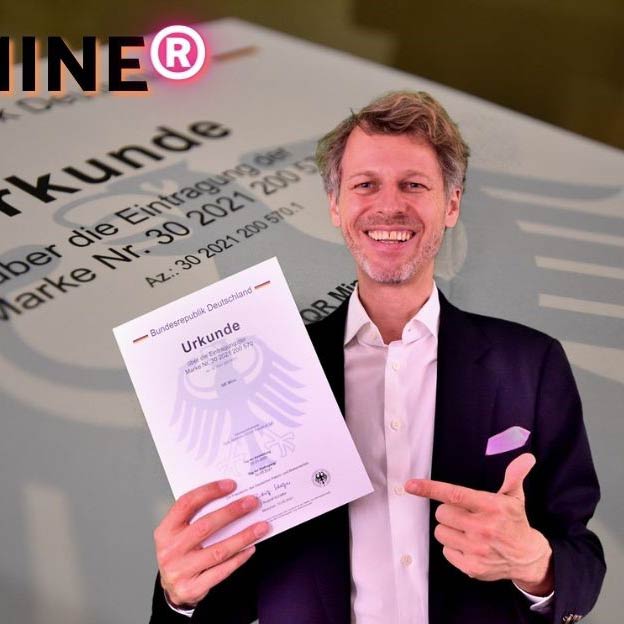
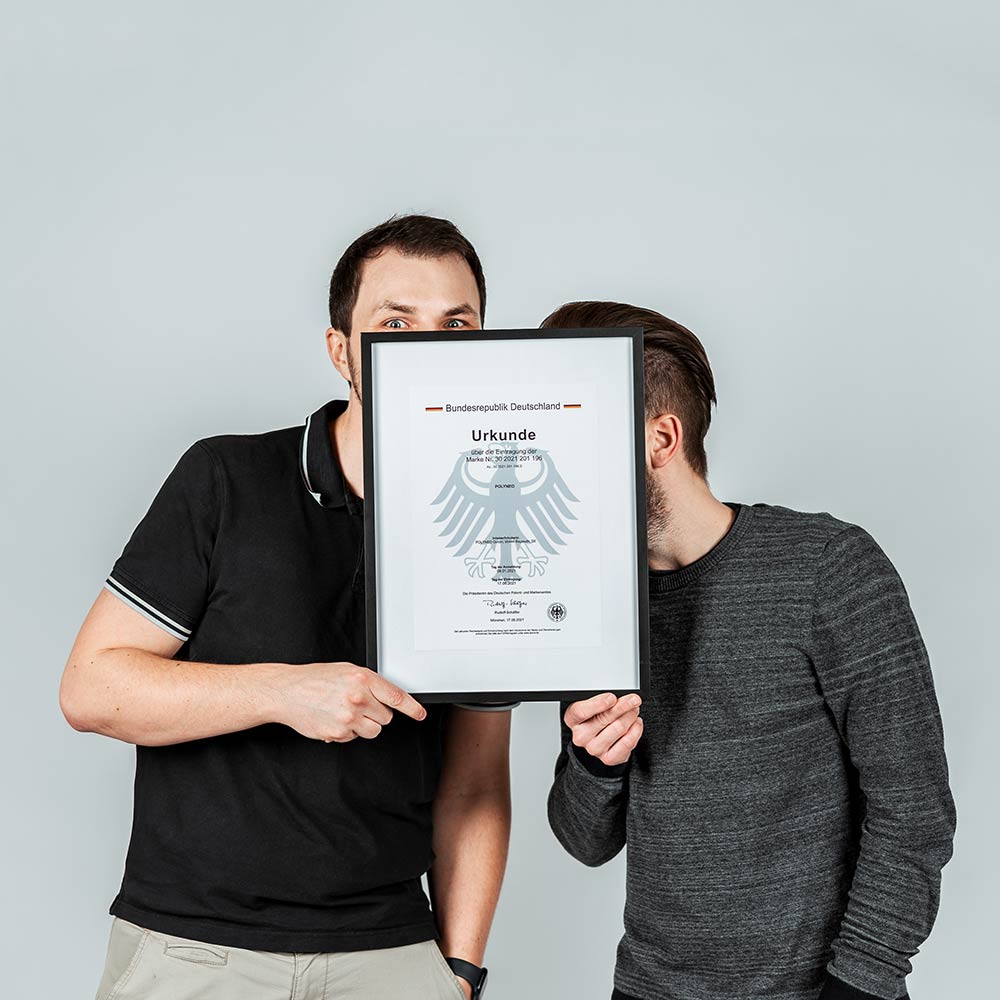
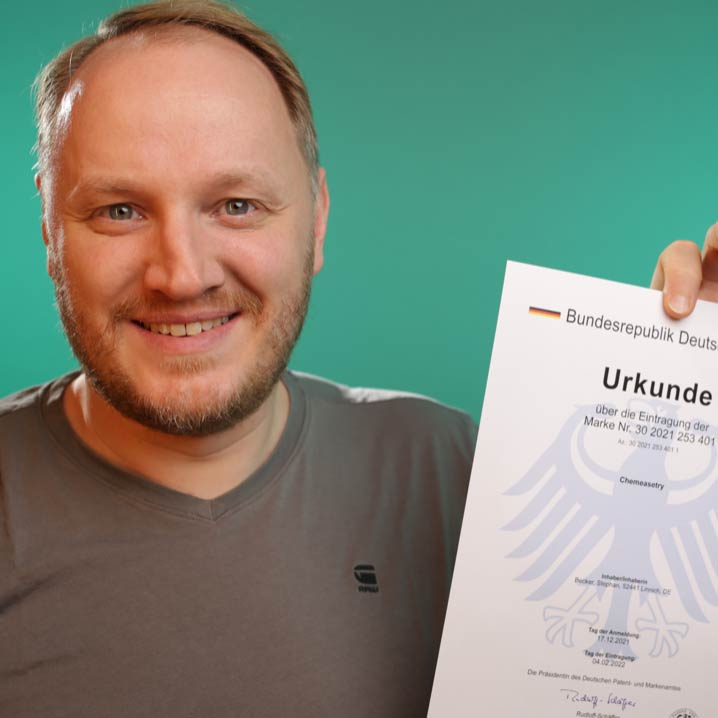

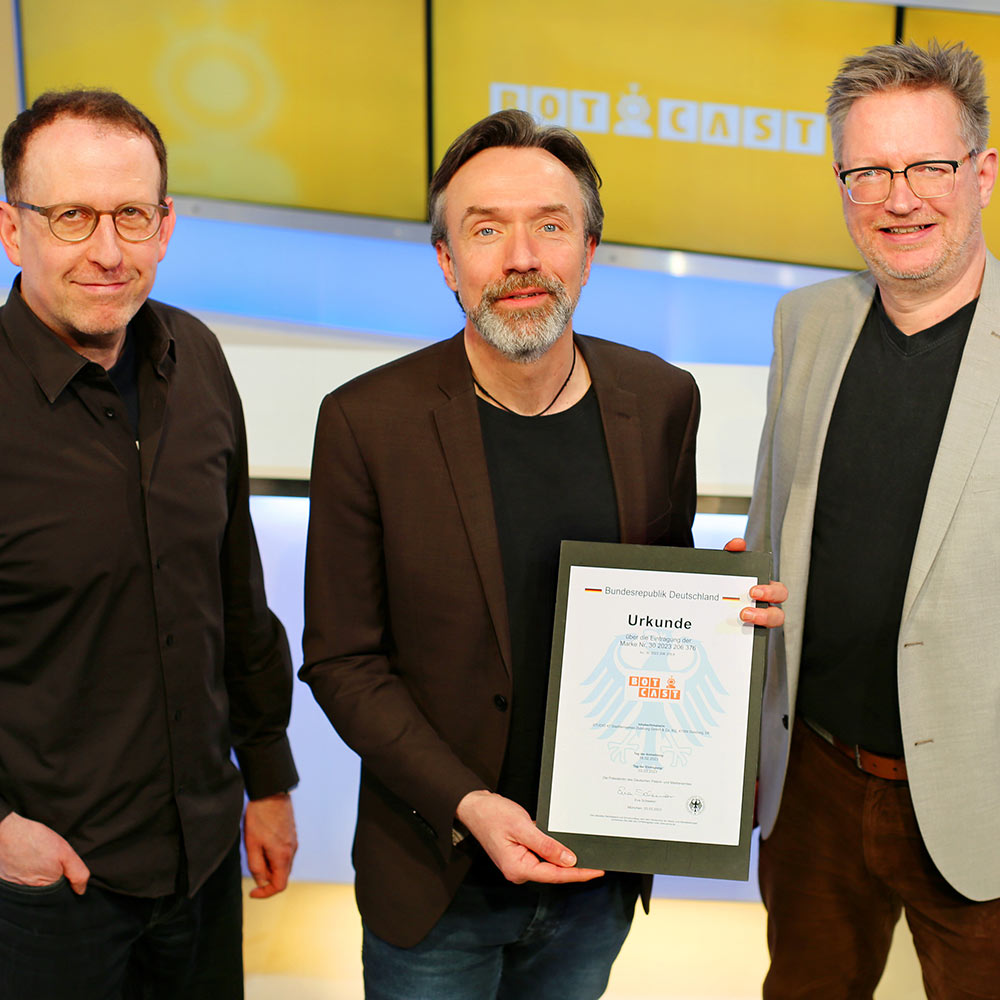
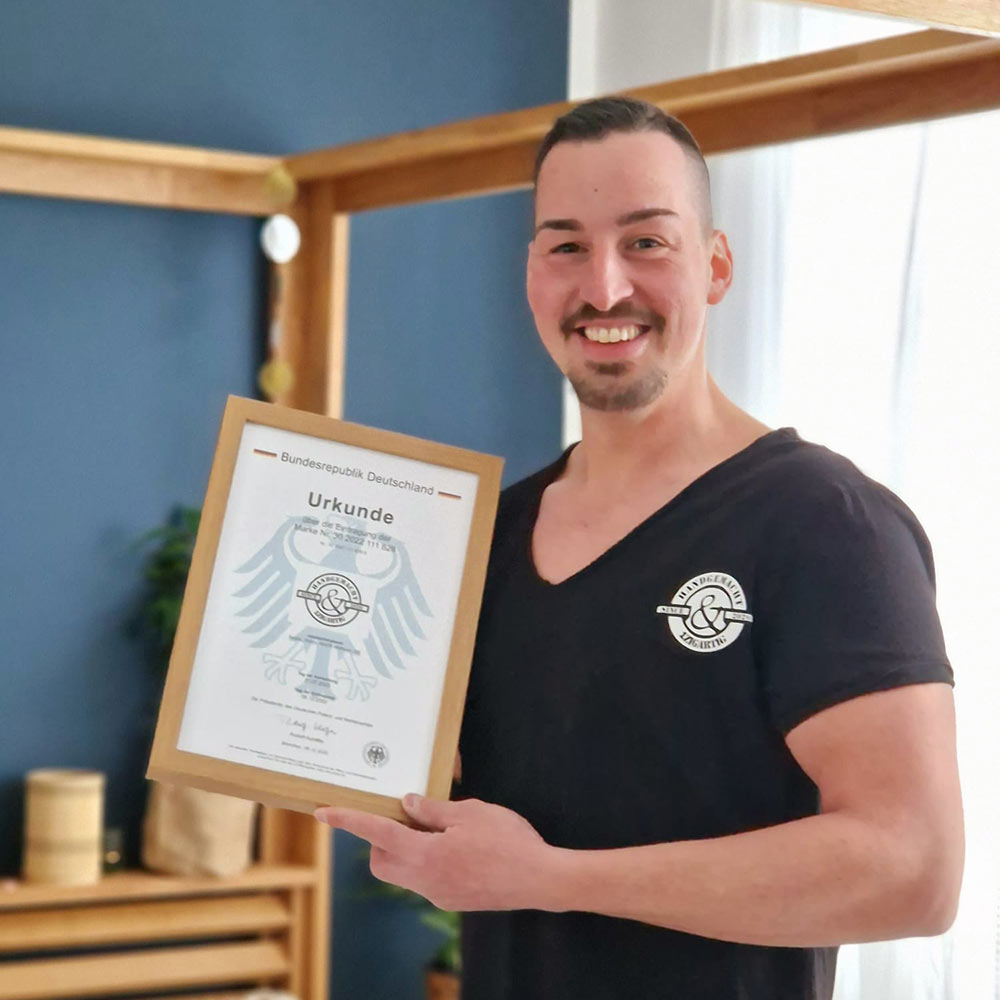
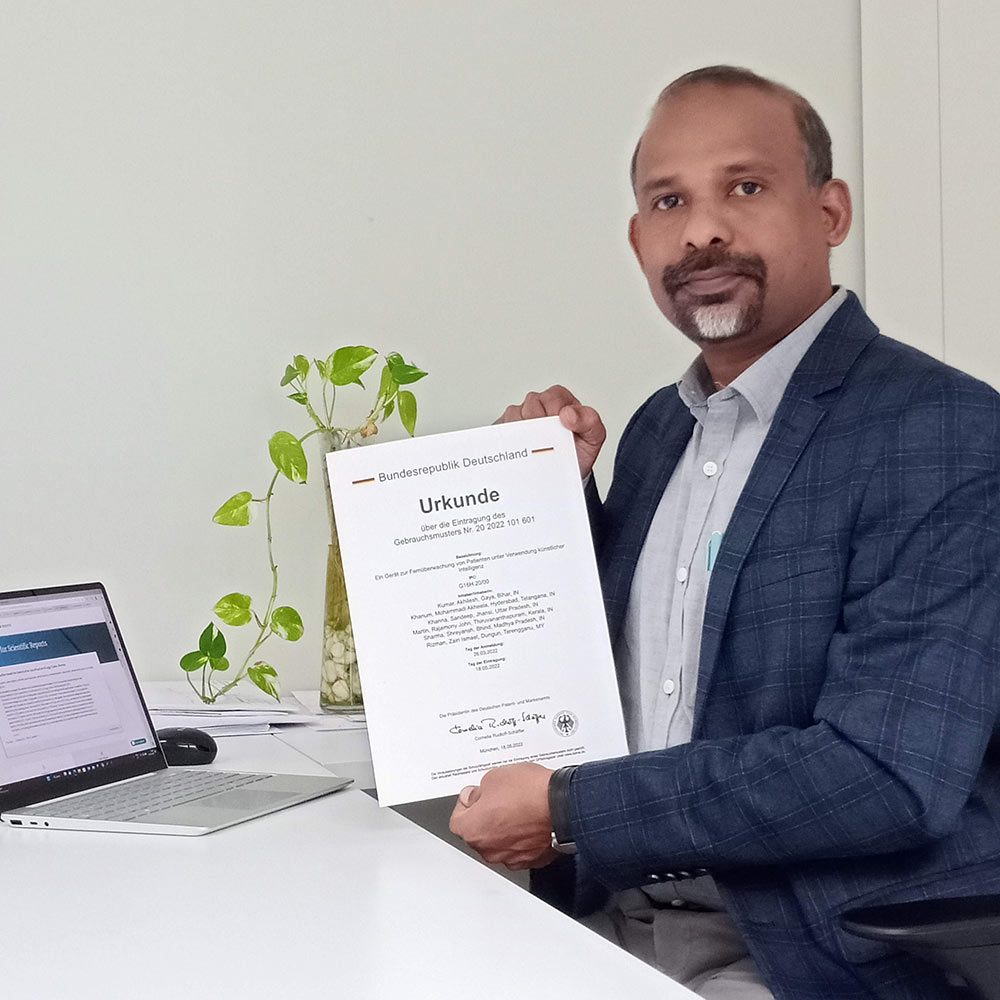
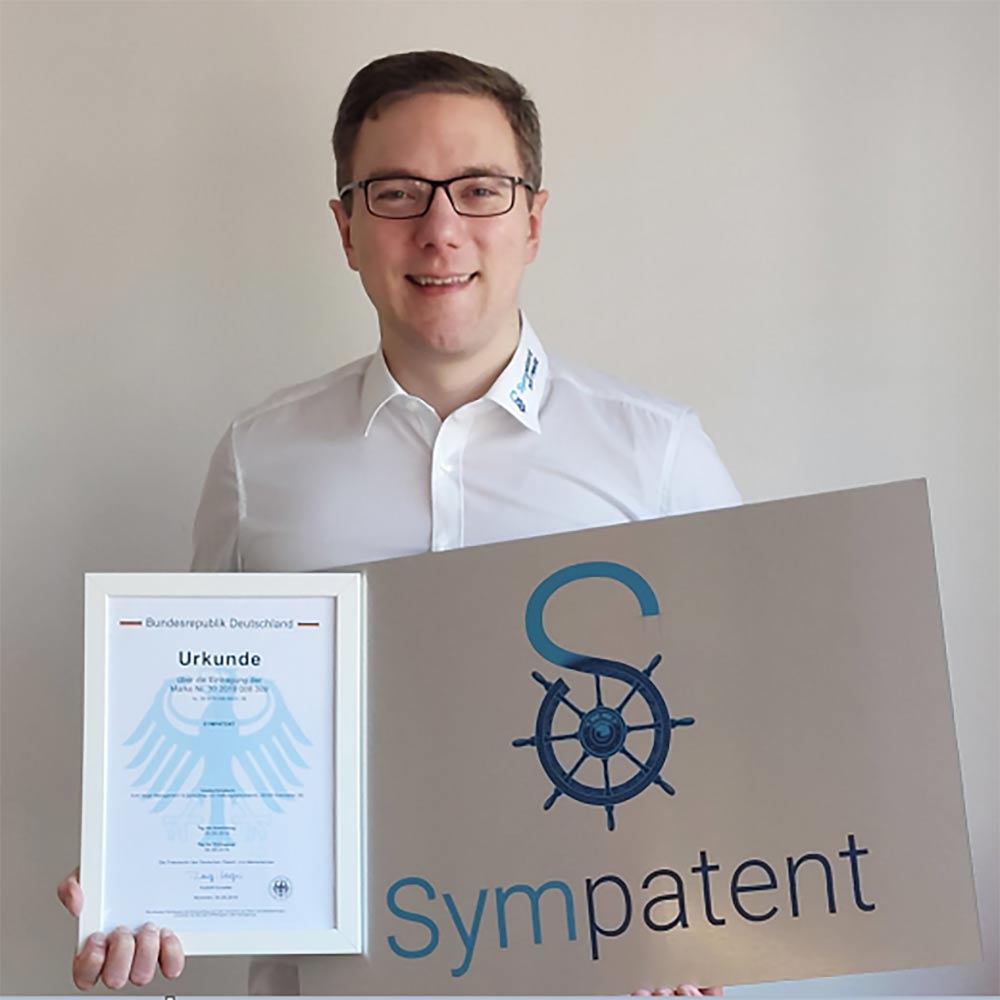
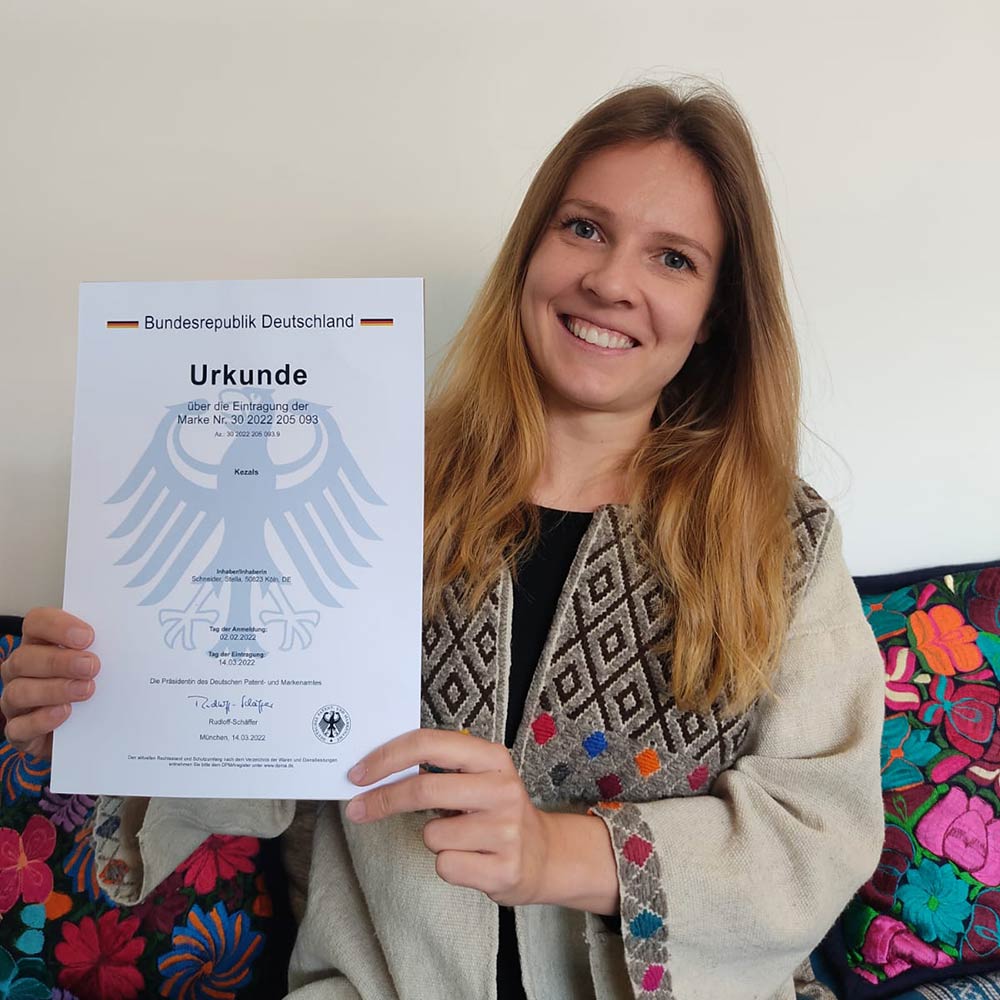

Briefly explained ... Expansion of responsibilities of the DPMA We now provide you with even more comprehensive information
Economic success, social progress: Intellectual property is a key factor for the sustainability of industry. Yet, small and medium-sized enterprises, in particular, still know too little about IP rights. New statutory duties of the DPMA are to change this.
Economic success, social progress: Intellectual property is a key factor for the sustainability of industry. Yet, small and medium-sized enterprises, in particular, still know too little about IP rights. New statutory duties of the DPMA are to change this.
In an increasingly digitised world, intangible assets play an ever more important role. They are often the basis for economic and social progress. That’s why it is also becoming more important to manage and protect intellectual property (IP) rights. These rights are vital to innovative companies, since they protect the value of their ideas and thus enable even risky investments.
Yet, small and medium-sized enterprises (SMEs), in particular, currently do not fully make use of the possibilities provided. Within the European Union, only around 9% of SMEs have applied for IP rights. They often know too little about, or have a mistaken view of, the costs, duration and scope of IP protection and its strategic benefits. In an effort to change this situation, the new section 26a of the Patent Act, in force since January 2022, gives the DPMA the mandate to inform the public, especially SMEs, about IP rights and the related limitations and about the exercise and enforcement of such rights. In addition, our mandate now includes cooperating with IP offices of other countries and with the international IP organisations in the fulfilment of our duties.
Against this backdrop, we have created a new unit, called “Promotion of the use of IP”, at the Information und Service Centre Berlin (DPMA-IDZ Berlin). After an establishment phase, the new unit focuses especially on the following tasks:
- acting as a central coordination and contact partner for all regional and national stakeholders, the European Union Intellectual Property Office (EUIPO), especially the EUIPO Observatory, the European Patent Office (EPO) and the World Intellectual Property Organization (WIPO) with respect to intellectual property in the context of various SME-related activities;
- raising awareness of IP rights and related support programmes in cooperation with IP offices of other countries and regions, the European Patent Organisation (EPOrg), the EUIPO and WIPO;
- developing concepts, offers of information and communication strategies;
- coordinating regional, national and international events and IP support programmes;
- identifying, maintaining and organising a network of relevant national and international stakeholders in the field of IP;
- providing assistance in connection with the implementation of support programmes offered by the EUIPO, the EPOrg and WIPO.
Our aim is to develop the new unit in the years to come and make it the central agency for the provision and development of information about how SMEs in particular can effectively use IP rights in Germany. As the Federal Government’s centre of expertise for the protection of intellectual property, we also aim to strategically complete our customer orientation.
Further information on the many services we provide to SMEs is available on our website.

In Focus A new working world is underway
Development of digitisation, working schemes flexible as to the place of work, new formats for exchange: By shaping and developing the DPMA working world, we offer our staff a modern working environment adapted to their individual living situations – while at the same time guaranteeing the quality of our services.
Efficient work processes, fully electronic procedures, responsible staff: Thanks to a high degree of digitisation and flexible working schemes, the DPMA proved to be particularly adaptable during the Covid-19 pandemic. And our staff used the leeway resulting from the pandemic with great work ethic. Consequently, there is no reason to completely return to the “old”, pre-Covid-19 working world. For this reason, and to remain an attractive employer for highly qualified specialists, we will develop and future-proof our working world, so the workplace and working time can be adapted even better to the individual needs of our staff. At the same time, we have to maintain both the digital and especially the face-to-face exchange. Yet, ensuring the quality of our services and being available to our customers have priority.
Flexibility as to the place of work: regular presence days at the office
Our new work agreement (Dienstvereinbarung) on workplace flexibility, which entered into force on 1 February 2023, provides that our staff have the possibility of teleworking and, in certain cases, mobile working, to the extent their posts or current duties do not require presence in the office. A minimum of hours must be worked in the office each month. In addition, there may be other reasons for working in the office, e.g. the participation in workshops, regular team gathering days or appraisal interviews. The respective organisational units are given a high degree of flexibility within the scope of the work agreement. In this respect, we rely on the staff members’ sense of responsibility and ability to self-organise, like we were able to do during the pandemic.
Before the new work agreement was entered into, intense consultations with colleagues from our specialist departments, the Equal Opportunities Officer and the representative bodies for the personnel and severely disabled staff members had been held in a dedicated working group. The results of a staff survey and an exchange of experience with other patent offices and authorities were also taken into consideration. We are currently filling the new work agreement with life, and we will evaluate it in two years’ time.
New exchange formats
In order to foster face-to-face exchange and bonds among colleagues even under flexible working schemes, we are also testing new exchange formats. We are developing recommendations on which format of exchange (face-to-face, virtual or hybrid) is best for what situations. For example, it is already becoming apparent that formats requiring presence in the office are particularly suitable for issues that involve being creative or holding discussions. By contrast, digital formats that allow screen content to be shared are particularly efficient in the case of a spontaneous or technically thorough exchange. In the future, hybrid meetings participants can also join virtually will probably be normal. It is planned that the arrangement of our rooms will follow the need for exchange in accordance with the statutory requirements and that functional rooms will be made available to accommodate the various exchange formats.
With these modern concepts, we establish ourselves as an attractive employer in a highly competitive market. At high-tech hubs such as Munich and Jena, the DPMA competes with large companies in its effort to recruit new staff; due to the demographic change, the competition for skilled labour can even be expected to intensify. A modern working culture adapted to the individual living situations of our staff is vital to a promising position in this competition.
Do you want to make a career change or to further your career? If the answer is yes, the DPMA is the place. The DPMA is a modern employer offering interesting duties, great variety and secure prospects. Our exciting jobs cover many areas.
Further information is available on our career pages.

20 years ago From MIPEX to DPMAdirekt — the success story of digital filing at the DPMA
Two anniversaries at one stroke: July 2022 marked 20 years of paperless patent applications at the DPMA, shortly after the DPMA had received the two millionth IP document. Today, it is common practice to use DPMAdirektPro and DPMAdirektWeb for making digital filings and communicating with the DPMA. But it has not always been this way.
In the late 1990s when legally secure online transaction systems were just being discussed and tested and no commercial, ready-to-use software was available for these tasks, several European patent offices started the MIPEX project (Message based Industrial Property information Exchange) in 1996. In addition to the creation of a secure network of these patent offices, the development of more secure online application procedures was one of the key tasks.
Ultimately, the patent offices of Germany, the United Kingdom, Sweden, Denmark and Switzerland jointly commissioned a software package (“PaTrAS — Patent and Trademark Application System”) that was intended to be applicable at the international level. In 2001, PaTrAS was ready for use and in test operation. The first electronic application was filed by Siemens AG (patent specification DE 102 30 170 B3). The DPMA received it on 4 July 2002.
20 years ago From MIPEX to DPMAdirekt — the success story of digital filing at the DPMA
Start of the European MIPEX project
Receipt of the first electronic patent application by the DPMA
Go-live of PaTrAS
Patents
Trade marks, utility models, PCT
PD documents
expoline-DE-plug-in
Introduction of DPMAdirekt
Designs
Subsequent submission of patent documents
DPMAdirektWeb: start for trade marks and designs
Patent applications entering the national phase
DPMAdirektPro
Electronic transmission
DPMAdirektWeb: adjustment to trade marks
Extension to enable subsequent submissions
DPMAdirektWeb: adjustment to designs
The system was unique at the time: It could be used to process a complete, signed document package including the application form, full texts and images. The DPMA had thus assumed a pioneering role in e-government. PaTrAS was not an immediate success: The high standards for the data to be submitted and the complex procurement of the required signature cards were initially an obstacle for applicants.
DPMAdirekt — a one-stop program
The original idea that IP management systems used by customers create the required data and use PaTrAS to validate and transmit them was not taken up as positively as expected at that time. For this reason, the DPMA developed the DPMAdirekt application, which customers could use to take all necessary steps for an application with a single program. Since November 2013, DPMAdirektWeb has offered an easy and uncomplicated option to file both trade mark and design applications via the user interface of a web browser. As a result, the majority of trade marks and designs are now filed with the DPMA by using this low-threshold e-filing service.
Seamless communication in both directions
For a long time, communication via the DPMAdirektPro and DPMAdirektWeb services was only possible in one direction. Only since the introduction of a new version of DPMAdirektPro in 2017 has the DPMA too been able to send electronic letters and communications to users. After registration for electronic letters and communications, customers can receive data in DPMAdirektPro, automatically import them into their own systems and thus exchange all correspondence seamlessly.
The benefits of DPMAdirektPro both sides enjoy are obvious: Pay lower fees to apply for IP rights and immediately receive a confirmation of receipt. Customers receive step-by-step guidance to navigate through the application and the subsequent filing of additional documents in the procedure, and the data are subjected to extensive plausibility checks. In this way, inconsistencies can be remedied immediately. At the DPMA, this pre-processing of digital data results in fewer mistakes and thus complaints. At the same time, the examining sections benefit from improved data quality.
In constant dialogue with our customers
The first million documents submitted to the DPMA were reached 17 years after the project had been launched. Only two and a half years later, in July 2022, the two millionth document was received. And we can assure you that we will continue to develop our electronic services and make them even more customer-friendly for you.
Information on e-filing of IP applications is available on our website.

At a glance Personnel and finances
The DPMA had a total of 2,805 staff at the end of 2022. (+ 3.0 % compared to 2021).
In 2022, 38.12 % of management positions at the DPMA were held by women.
In 2022 we hired 158 new staff.
Incentive bonuses for 727 very committed and high-performing staff members were granted in the period from July 2021 to June 2022.

IT specialist

Media and information services clerk

Electrician for power and building services engineering

Management assistant in office communications

Carpenter

Administrative employee
A total of 29 trainees in 6 skilled occupations offered by the DPMA.
Further training
5.3 training days were used on average by staff for personal further training.
387 in-house training courses and language courses were held for our staff in 2022.
Income and expenditure
Breakdown of income by type of IP
Total expenditure DPMA €243.5m
Career at the DPMA
Are you looking for a new career venture? Are you interested in a varied job with a wide range of development opportunities at the cutting edge of technology? At the same time, you would like to be able to balance work and personal life?
As a federal authority, we have a lot to offer to you – both as a central provider of IP services and as a family-friendly employer with flexible working hours.
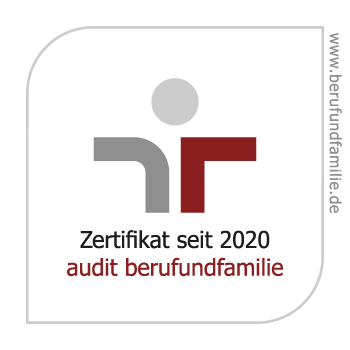
Information on job vacancies for the Jena location as well as on other interesting employment opportunities at the DPMA is available on our website under “Career”. Subscribe to our RSS feed so that you won’t miss out on any advertised job vacancies.